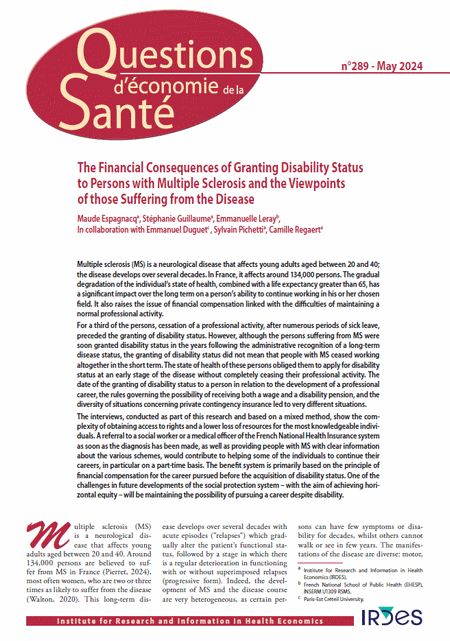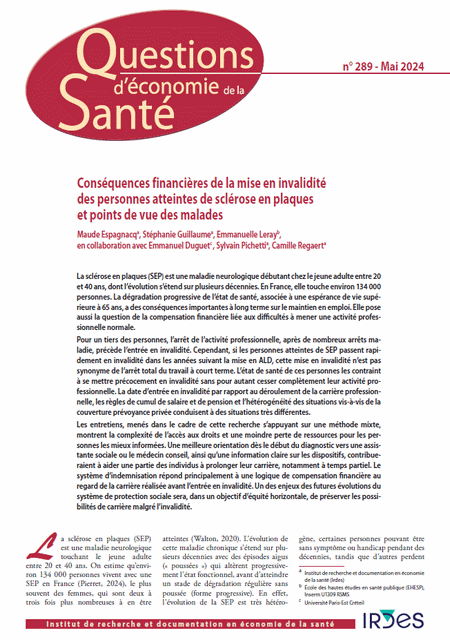The Financial Consequences of Granting Disability Status to Persons with Multiple Sclerosis and the Viewpoints of those Suffering from the Disease
Espagnacq M. (IRDES), Guillaume S. (IRDES), Leray E. (EHESP, INSERM U1309 RSMS), in collaboration with Duguet E. (Université Paris-Est Créteil), Pichetti S. (IRDES), Regaert C. (IRDES)
Questions d'économie de la santé (Issues in Health Economics) n° 289 - May 2024
ABSTRACT
Multiple sclerosis (MS) is a neurological disease that affects young adults aged between 20 and 40; the disease develops over several decades. In France, it affects around 134,000 persons. The gradual degradation of the individual's state of health, combined with a life expectancy greater than 65, has a significant impact over the long term on a person's ability to continue working in his or her chosen field. It also raises the issue of financial compensation linked with the difficulties of maintaining a normal professional activity.
For a third of the persons, cessation of a professional activity, after numerous periods of sick leave, preceded the granting of disability status. However, although the persons suffering from MS were soon granted disability status in the years following the administrative recognition of a long-term disease status, the granting of disability status did not mean that people with MS ceased working altogether in the short term. The state of health of these persons obliged them to apply for disability status at an early stage of the disease without completely ceasing their professional activity. The date of the granting of disability status to a person in relation to the development of a professional career, the rules governing the possibility of receiving both a wage and a disability pension, and the diversity of situations concerning private contingency insurance led to very different situations.
The interviews, conducted as part of this research and based on a mixed method, show the complexity of obtaining access to rights and a lower loss of resources for the most knowledgeable individuals. A referral to a social worker or a medical officer of the French National Health Insurance system as soon as the diagnosis has been made, as well as providing people with MS with clear information about the various schemes, would contribute to helping some of the individuals to continue their careers, in particular on a part-time basis. The benefit system is primarily based on the principle of financial compensation for the career pursued before the acquisition of disability status. One of the challenges in future developments of the social protection system - with the aim of achieving horizontal equity - will be maintaining the possibility of pursuing a career despite disability.
See also Questions d'économie de la santé n° 289 in French: Conséquences financières de la mise en invalidité des personnes atteintes de sclérose en plaques et points de vue des malades.

